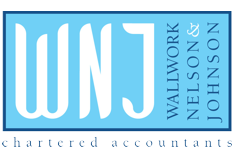Small business calls for Autumn Statement help
Small businesses are looking to the chancellor’s approaching Autumn Statement for measures to help them in their struggles.
The Bank of England’s September decision to hold the interest base rate at 5.25 per cent has been welcomed as ‘breathing space’ for small firms.
However, the Federation of Small Businesses (FSB) believes the chancellor now needs to deliver a statement to help them, pointing out the negative impact rising interest rates has had on them.
The organisation’s national chair Martin McTague said: “It’s been a long slog to get to this point, and many small firms have suffered financially along the way, with margins and cash reserves battered by both the phenomenon the Bank tried to control, inflation, and the ‘cure’ it applied in the form of 14 consecutive rises in the base rate, leading to higher borrowing costs and dampened consumer demand.”
He added: “Small firms need some respite, and now will look to the Autumn Statement for signs from the government that it’s listening and understands their concerns.
“As a nation, we urgently need action to stem late payments, which are used by large corporates to offset interest rate rises by demanding, in practice, free credit from their supply chains.
“We’re also calling for an overhaul of business rates and an extension for the 75 per cent discount for SMEs in retail, hospitality, and leisure, due to expire in April, as it is these consumer-facing sectors which have been especially acutely affected by falling confidence levels and economic headwinds.”
The FSB says raising the VAT threshold to £100,000 would be another way to unleash the potential of many small businesses, helping to stimulate the economy.
Around one in ten small businesses say they are at least at moderate risk of insolvency, twice the rate of large companies, and risks abound, from higher debt repayments to lower levels of consumer spending.
The FSB is also warning that rising fuel prices may have a further negative impact on the economy.
Mr McTague added: “The higher cost of filling a tank could lower consumer spending, with people put off from visiting their local high street, booking a weekend trip, or going for a meal out.
“A jump in freight and transport costs could also add yet more pressure to margins for businesses in all sectors.”
• To discuss any issues raised by this article please contact me on 01772 430000




